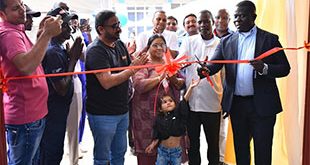
MOROTO, UGANDA | THE INDEPENDENT | Leaders in the Karamoja sub-region have raised concerns over the increasing number of school-aged children in cattle kraals.
Despite interventions by both government and development partners, parents continue taking their children, especially boys, to the kraals as young as six years old.
Paul Lokol, the LCV Chairperson of Nabilatuk, says that there is a high number of children who are out of school and still trapped in the kraals. Lokol observed that the efforts to rally the children back to school are often hindered by the negative attitude of parents towards education, as children take full responsibility for the domestic chores, including providing for the families.
Lokol also faulted some leaders for discouraging the community from taking their children to school.
He said that while he has been advocating for compulsory education for all school-going children, there is a section of leaders who are against the school campaign because they want the children to look after their cows. He said that politicians are responsible for the challenges affecting the Karamojong community because they do not want to act.
Christopher Lolem, the LCIII Chairperson of Lobongia Sub-county in Kaabong district, observed that the communities have deliberately paid a deaf ear to education despite the government’s interventions.
Lolem noted that the communities are taking longer to understand the value of taking children to school, and they need continuous engagement. He said that although they use every forum to mobilize children, they get resistance from some parents.
Thomas Otim Loukae, the Community-Based Monitor for the Karamoja Anti-Corruption Coalition in Napak district, observed that the parents are avoiding taking their children to school because they fear paying fees.
Loukae said that the parents have often given an excuse of poverty to deny their children the right to education, and yet they have money for drinking alcohol.
Despite the challenges, the section of leaders is optimistic that the problem is slowly been addressed through various programs.
Joseph Nangole Lobot, the LCV Chairperson of Amudat district, acknowledged that the Pokot community is gradually embracing education.
Lobot said that the community is slowly understanding the values and perception of education, and this has seen an increase in enrolment in the schools. He said the enrollment that used to be 8,000 is now balancing between 16,000 and 17,000 learners.
Lobot explained that they are now struggling with the contradiction of the government’s Universal Primary Education, which is reported to be free, yet schools continue charging parents money.
Lobot said that the money charged to parents for school development and other necessities has discouraged parents from keeping children at school because of their vulnerable state.
Moses Lokwii, the Moroto District Education Officer, said that they have tried everything possible to mobilize the children to go to school, but little has been realized due to a lack of cooperation from the community.
Lokwii said that they are now working with partners to draft the bylaws on education, which will soon be operationalized.
He said that the bylaws will help them to ensure that all the children who are herding, burning charcoal, and working in the mining sites are taken to school. He added that they would also put penalties on the parents who are exploiting their children.
Denis Okori, the Amudat Resident District Commissioner, confirmed that the low enrollment of learners in schools is slowly being addressed by the district leadership.
Okori said that they have looked at various programs such as the Go Back to School campaign, making the school environment conducive for learners and recruiting more teachers.
Okori said that the district security committee and other partners have been working together to end the harmful practices and ensure the girls stay at school.
In 1998, the government, in partnership with Save the Children Organization, introduced the Alternative Basic Education for Karamoja, ABEK, where classes were held from the grazing areas to trap the children who were looking after the livestock. It was a non-formal education approach that targeted children aged 6-18 years. The curriculum was based on specialized manuals integrating literacy, numeracy, and life skills.
The program partly succeeded, as some parents agreed to send their children to those learning centers because of the food that was provided. Several children were withdrawn from mining activities, herding cattle and those involved in other businesses from the urban streets, and they joined schools.
However, the program started fading off in 2019 until it finally closed its doors, forcing several children to return to their usual businesses of mining, grazing, and others.
******
URN
 The Independent Uganda: You get the Truth we Pay the Price
The Independent Uganda: You get the Truth we Pay the Price



